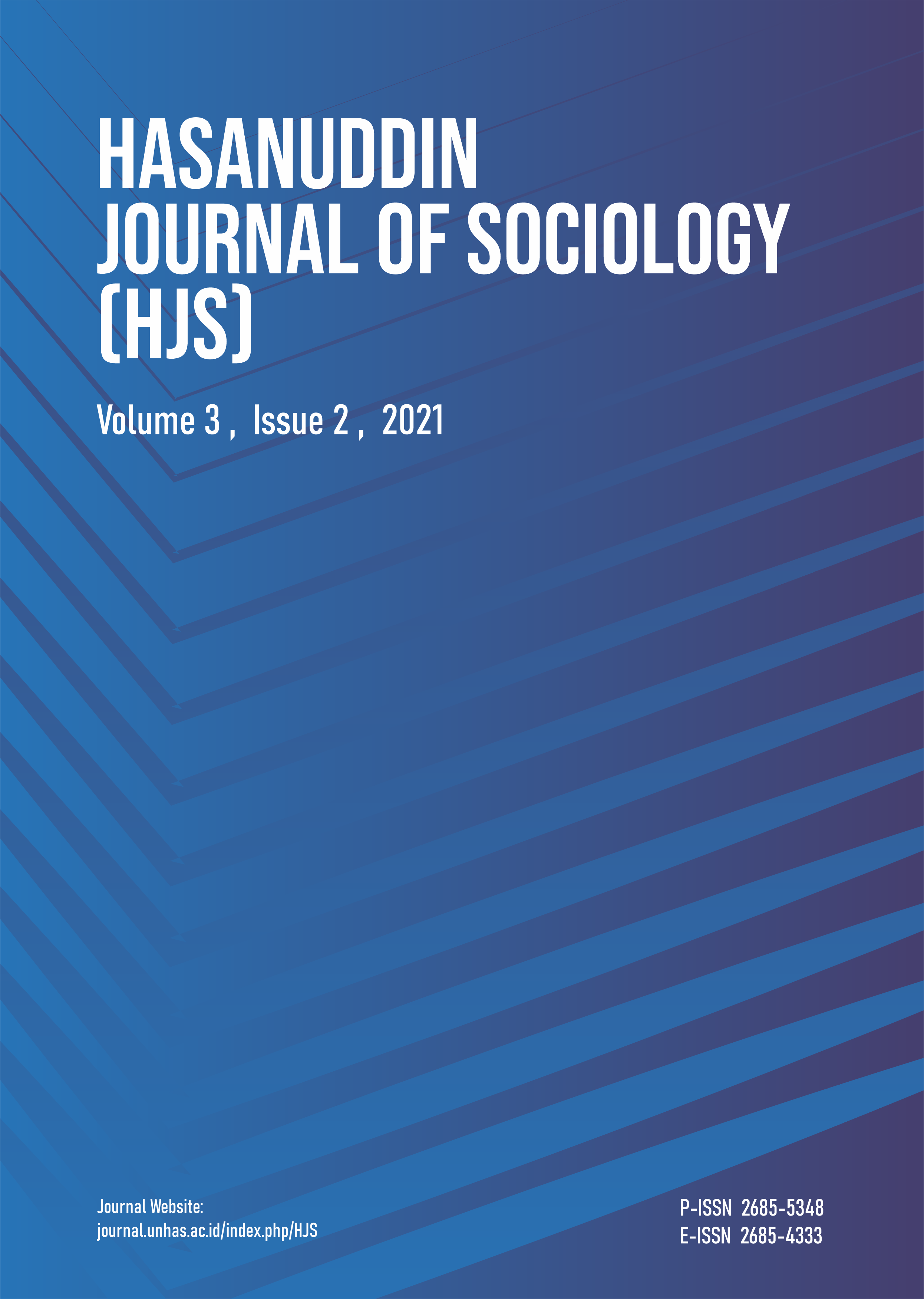SOLIDARITAS SOSIAL MASYARAKAT TRANSMIGRAN BALI (KASUS KELURAHAN NGKARI-NGKARI KECAMATAN BUNGI KOTA BAUBAU PROVINSI SULAWESI TENGGARA)
DOI:
https://doi.org/10.31947/hjs.v3i1.14751Abstract
The purpose of this study was to determine the social solidarity and social actions of the Balinese transmigrant community in Ngkari-ngkari. The subjects in this study were Balinese transmigrants in Ngkari-ngkari as many as 10 (ten) people, 1 (one) local community and 1 (one) other transmigrant community. The research approach used is a qualitative approach. The research objective used was descriptive. While the basic research used case study method. The results of the study show that the social solidarity of the Balinese transmigrant community can be categorized as organic solidarity where this solidarity can be seen in the division of labor and is based on a high level of interdependence. The shift of mechanical solidarity to organic solidarity occurs because of the pattern of adaptation and following the times so that people change their livelihoods, from farmers to formal jobs. The driving factor for solidarity is because religion becomes very dominant in creating social solidarity. The inhibiting factor for solidarity is modernization because in the era of modernization all activities carried out have turned to technology and then lead to materialism. The social action of the transmigrant community is oriented by religion and value rationality. For example, in Hindu holy festivals and other activities required by Hindus, such as cutting teeth, 3 monthly children and Ngaben. Keywords: Social Solidarity, Social Action, TransmigrationDownloads
Download data is not yet available.









